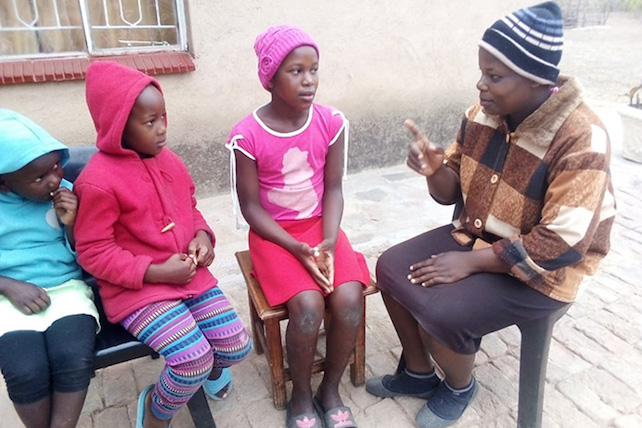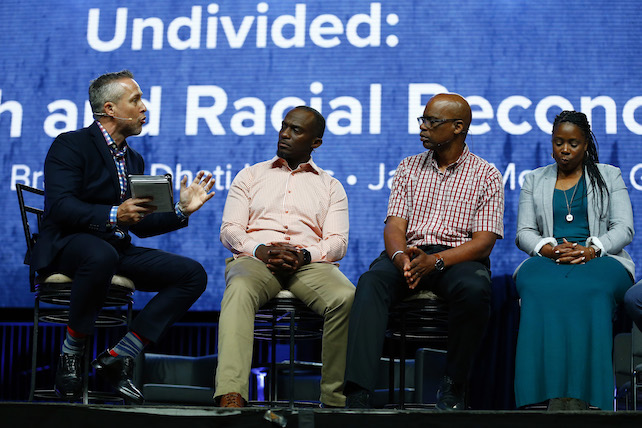The Sacred Work of Saying Yes to Yourself
The holiday season is here. Like me, your focus is likely shifting to all of the needs around you. Giving to others is important work.
But, did you know that saying yes to yourself is just as important?
Saying yes to yourself isn’t about being selfish. Instead, the work is sacred. It’s about staying connected to yourself and to God in deep and life-giving ways.
Saying “Yes” to Yourself
After counseling women for over 15 years, I’m convinced that the key to emotional, spiritual, and relational health is to STOP focusing on saying “No” to other people. Instead, real maturity occurs by learning how to say “Yes” to your own needs, wants, and values. Claiming the life God has for you doesn’t start by shutting others down. It starts by creating the space to get clear about the person God made YOU to be.
The problem is that we are often taught to shove this important work to the sidelines. We’re affirmed for responding to the needs of everyone around us. We’re not taught the importance of saying “Yes” to ourselves. Instead, we’re taught to be eternal need-meeters and people-pleasers.
But, what if you started to pay attention to the worn-out parts of yourself? For example, what if you took a moment to answer these questions:
- What do you want more of in your life in this season?
- Who do you want to let IN?
- What part of your body or soul needs to hear you say “Yes, I am listening”?
You may have been taught that it’s selfish to think about these questions. But, nothing could be further from the truth. In fact, I believe that saying “Yes” to yourself and “Yes” to restoring the beautiful person God made is your most important job on this earth. It’s what the world needs most from you.
What holds you back from saying “Yes” to:
- Caring for the parts of yourself that are hurting,
- Claiming your God-given voice, and
- Choosing activities that nourish the heart and body God made?
Remember, you are a beautiful soul made by creative design. You have been given the power of God’s Spirit, who lives within you, comforts you, and counsels you every step of the way. No matter how shoved aside, burned out, or put down you feel, there is a power within you waiting to be unleashed. God is in the business of restoring what he made. And he wants to heal and restore you.
Saying Yes to God
When Jesus encountered a sick man laying by a pool, he asked him a simple, but profound question: “Do you want to be well?” (John 5:6)
If you are like many women, you might feel hesitant as you consider this question. Part of you cries out, “Yes!” But another part of you might feel any of these ways:
- Shouldn’t I always sacrifice for other people?
- It’s selfish to want to feel better about my life.
- It’s wrong to pursue dreams held within me.
In fact, most women think that saying “Yes” to God means saying “Yes” to helping other people. For example, you might already be praying, “God help me to be more loving and kinder toward that challenging person. I know that’s what you want from me.”
But, what if saying “Yes” to God also means saying “Yes” to helping the parts of your own soul in need?
This way of thinking might go against your nature in so many ways. Instead of turning toward the weary parts of yourself desperate for your attention, you listen to these voices instead:
- Just bury it.
- Focus on all those needs over there.
- You’re not worth the time.
- You don’t have the time.
But, refusing to pay attention to the voice of your own needs and areas of pain is soul killing. And the people in your life need a woman who is moving toward healing. They might not like it at first if you start taking time for yourself. But, trust me, they’ll adjust.
Learning to say “Yes” to yourself starts with listening to the needs of your own body, heart and soul, not just to the needs of other people. Listening to the voice of your own needs can be painful and scary at first. It takes courage and commitment. It takes showing up for yourself when much of you would rather just stay in denial. But, if you can learn to turn toward yourself when you notice the tug of pain, anger, or longing, you’ll start to train yourself that you are worth healing.
Remember, as you commit to taking time for yourself, you can bank on certain outcomes. For examples, God always says “Yes” to the following, as you set time apart to connect to yourself and to his love:
- Drawing close to you when you draw close to him (James 4:8).
- Completing the good work he started in you (Phil. 1:6).
- Setting you free from guilt and shame (Gal. 5:1).
- Bringing more love, joy, peace, patience, kindness, gentleness, goodness, and self-control in to the depths of your being (Gal. 5:22-23).
Learning to say “Yes” to yourself goes hand-in-hand with saying “Yes” to God’s hand reaching out to you. And, as you say “Yes” to yourself and “Yes” to God, the yes that you say to other people will shift for the better, too.
“How can you draw close to God when you are far from your own self?” —St. Augustine, Confessions
Questions to Ask Yourself
Over this coming week, I invite you to take a step toward saying “Yes” to spending just 20 minutes a day by yourself with a journal. If you have to hide in a closet or in your car to get privacy, that’s OK. (We’ve all been there!) Use the following questions to guide you:
1.) When you consider the work of saying “Yes” to yourself, what do you feel inside? It might feel exciting, selfish, or even a bit frightening. Pay attention to what you notice without judgment. Write down what you feel in your journal or share it with a friend. Invite God into your honest experience, too.
2.) Consider these sentences:
- God made you whole before the world hurt you.
- God called you good before shame entered in.
- God named you beloved, before parts of you were taught to believe otherwise.
Notice which word or phrase stands out to you. Which phrase calls out to your soul? Why do you think that is?
3.) Do you believe God is for you? If not, where did that other message come from?
4.) What comes up inside of you as you consider Jesus’s question: “Do you want to be well?”
5.) This holiday season, what is one way you could say “Yes” to yourself each day?
This article originally appeared here.















